
Introduction
This page was updated March 17, 2025.
In this hilariously candid essay, one literary giant takes aim at another as Leo Tolstoy launches into a remarkable takedown of William Shakespeare, a writer widely regarded as the greatest dramatist of all time. “Shakespeare Sucks!” (originally On Shakespeare and on Drama 1906) presents Tolstoy’s unfiltered contempt for the Bard’s work with almost comical conviction.
What makes this piece so amusing is Tolstoy’s utter bewilderment that anyone could find merit in Shakespeare’s plays. Despite repeatedly forcing himself to read Shakespeare’s works over a fifty-year period—”in Russian, in English, in German and in Schlegel’s translation”—the Russian novelist remains steadfastly unimpressed, experiencing only “repulsion, weariness, and bewilderment.”
The humor lies in Tolstoy’s deadly serious tone as he systematically attempts to dismantle Shakespeare’s reputation, particularly in his analysis of “King Lear.” There’s something delightfully absurd about watching Tolstoy, himself a literary master, complaining about plot inconsistencies and anachronisms with the stubbornness of a modern-day internet critic. His frustration builds to the point where he suggests Shakespeare’s acclaim is “a great evil, as is every untruth”—an almost comically dramatic conclusion that reveals more about Tolstoy’s own artistic sensibilities than any actual shortcoming in Shakespeare’s work.
In this clash of literary titans, we witness the fascinating spectacle of one genius utterly failing to appreciate another, reminding us that even the greatest artists can sometimes be the harshest—and most entertainingly wrong-headed—critics
Shakespeare Sucks! by Leo Tolstoy
I remember the astonishment I felt when I first read Shakespeare. I expected to receive a powerful esthetic pleasure, but having read, one after the other, works regarded as his best: “King Lear,” “Romeo and Juliet,” “Hamlet” and “Macbeth,” not only did I feel no delight, but I felt an irresistible repulsion and tedium, and doubted as to whether I was senseless in feeling works regarded as the summit of perfection by the whole of the civilized world to be trivial and positively bad, or whether the significance which this civilized world attributes to the works of Shakespeare was itself senseless. My consternation was increased by the fact that I always keenly felt the beauties of poetry in every form; then why should artistic works recognized by the whole world as those of a genius—the works of Shakespeare—not only fail to please me, but be disagreeable to me! For a long time I could not believe in myself, and during fifty years, in order to test myself, I several times recommenced reading Shakespeare in every possible form, in Russian, in English, in German and in Schlegel’s translation, as I was advised. Several times I read the dramas and the comedies and historical plays, and I invariably underwent the same feelings: repulsion, weariness, and bewilderment. At the present time, being desirous once more to test myself, I have, as an old man of seventy-five, again read the whole of Shakespeare, including the historical plays, the “Henrys,” “Troilus and Cressida,” the “Tempest,” “Cymbeline,” and I have felt, with even greater force, the same feelings—this time, however, not of bewilderment, but of firm, indubitable conviction that the unquestionable glory of a great genius which Shakespeare enjoys, and which compels writers of our time to imitate him and readers and spectators to discover in him non-existent merits—thereby distorting their esthetic and ethical understanding—is a great evil, as is every untruth.
Altho I know that the majority of people so firmly believe in the greatness of Shakespeare that in reading this judgment of mine they will not admit even the possibility of its justice, and will not give it the slightest attention, nevertheless I will endeavor, as well as I can, to show why I believe that Shakespeare can not be recognized either as a great genius, or even as an average author….
However hopeless it may seem, I will endeavor to demonstrate in the selected drama—”King Lear”—all those faults equally characteristic also of all the other tragedies and comedies of Shakespeare, on account of which he not only is not representing a model of dramatic art, but does not satisfy the most elementary demands of art recognized by all.
Dramatic art, according to the laws established by those very critics who extol Shakespeare, demands that the persons represented in the play should be, in consequence of actions proper to their characters, and owing to a natural course of events, placed in positions requiring them to struggle with the surrounding world to which they find themselves in opposition, and in this struggle should display their inherent qualities.
In “King Lear” the persons represented are indeed placed externally in opposition to the outward world, and they struggle with it. But their strife does not flow from the natural course of events nor from their own characters, but is quite arbitrarily established by the author, and therefore can not produce on the reader the illusion which represents the essential condition of art.
Lear has no necessity or motive for his abdication; also, having lived all his life with his daughters, has no reason to believe the words of the two elders and not the truthful statement of the youngest; yet upon this is built the whole tragedy of his position.
Similarly unnatural is the subordinate action: the relation of Gloucester to his sons. The positions of Gloucester and Edgar flow from the circumstance that Gloucester, just like Lear, immediately believes the coarsest untruth and does not even endeavor to inquire of his injured son whether what he is accused of be true, but at once curses and banishes him. The fact that Lear’s relations with his daughters are the same as those of Gloucester to his sons makes one feel yet more strongly that in both cases the relations are quite arbitrary, and do not flow from the characters nor the natural course of events. Equally unnatural, and obviously invented, is the fact that all through the tragedy Lear does not recognize his old courtier, Kent, and therefore the relations between Lear and Kent fail to excite the sympathy of the reader or spectator. The same, in a yet greater degree, holds true of the position of Edgar, who, unrecognized by any one, leads his blind father and persuades him that he has leapt off a cliff, when in reality Gloucester jumps on level ground.
These positions, into which the characters are placed quite arbitrarily, are so unnatural that the reader or spectator is unable not only to sympathize with their sufferings but even to be interested in what he reads or sees. This in the first place.
Secondly, in this, as in the other dramas of Shakespeare, all the characters live, think, speak, and act quite unconformably with the given time and place. The action of “King Lear” takes place 800 years b.c., and yet the characters are placed in conditions possible only in the Middle Ages: participating in the drama are kings, dukes, armies, and illegitimate children, and gentlemen, courtiers, doctors, farmers, officers, soldiers, and knights with vizors, etc. It is possible that such anachronisms (with which Shakespeare’s dramas abound) did not injure the possibility of illusion in the sixteenth century and the beginning of the seventeenth, but in our time it is no longer possible to follow with interest the development of events which one knows could not take place in the conditions which the author describes in detail. The artificiality of the positions, not flowing from the natural course of events, or from the nature of the characters, and their want of conformity with time and space, is further increased by those coarse embellishments which are continually added by Shakespeare and intended to appear particularly touching. The extraordinary storm during which King Lear roams about the heath, or the grass which for some reason he puts on his head—like Ophelia in “Hamlet”—or Edgar’s attire, or the fool’s speeches, or the appearance of the helmeted horseman, Edgar—all these effects not only fail to enhance the impression, but produce an opposite effect. “Man sieht die Absicht und man wird verstimmt,” as Goethe says. It often happens that even during these obviously intentional efforts after effect, as, for instance, the dragging out by the legs of half a dozen corpses, with which all Shakespeare’s tragedies terminate, instead of feeling fear and pity, one is tempted rather to laugh.
Why This Critique Matters
Tolstoy’s blunt dismissal of Shakespeare represents a fascinating moment in literary history. As one of the 19th century’s greatest novelists, Tolstoy’s unflinching critique of the most celebrated playwright in Western literature provides a rare glimpse into how even genius can fail to recognize genius. The importance of this piece lies not in whether Tolstoy was right (most critics would strongly disagree with his assessment), but in how it reveals the profound differences in artistic sensibilities that can exist between literary giants.
This essay also matters because it challenges us to question how and why certain artists achieve canonical status. Tolstoy suggests that Shakespeare’s reputation may be a case of collective delusion, where readers and critics “discover in him non-existent merits.” While provocative, this view reminds us that no artist—not even Shakespeare—should be beyond thoughtful criticism.
Finally, Tolstoy’s critique inadvertently tells us more about Tolstoy himself than about Shakespeare. His preference for naturalistic plots and moral clarity illuminates the aesthetic principles that guided his own masterworks like “War and Peace” and “Anna Karenina,” showing how his Russian realist sensibilities made Shakespeare’s theatrical flourishes seem artificial and contrived.
Analysis of Tolstoy’s Shakespeare Critique
Tolstoy’s essay presents a remarkably candid and unexpected attack on Shakespeare from one literary giant to another. Several key elements characterize this critique:
Personal Bewilderment as Starting Point
Tolstoy begins with his subjective experience, describing his persistent inability to appreciate Shakespeare despite numerous attempts over fifty years. This approach establishes a confessional tone that gradually transforms into authoritative criticism. His bewilderment evolves from self-doubt (“I could not believe in myself”) to absolute conviction, reflecting his journey from questioning his own taste to questioning Shakespeare’s genius.
Criteria-Based Criticism
Tolstoy evaluates Shakespeare according to specific dramatic principles, particularly that characters should:
- Be placed in opposition to their world through a “natural course of events”
- Display their qualities through this conflict
- Behave consistently with their established character
By applying these criteria to “King Lear,” Tolstoy methodically attempts to demonstrate why Shakespeare fails as a dramatist on technical grounds rather than merely personal preference.
Focus on Artificiality
The concept of “naturalness” dominates Tolstoy’s critique. He repeatedly attacks elements he considers contrived:
- The “arbitrary” plot devices lacking logical motivation
- Character relationships that don’t “flow from their characters”
- Historical anachronisms that undermine believability
- “Coarse embellishments” designed for emotional effect
Cultural Criticism Within Literary Criticism
Beyond critiquing Shakespeare’s works themselves, Tolstoy targets the cultural phenomenon of Shakespeare worship. His characterization of Shakespeare’s reputation as “a great evil” suggests he sees this as a moral issue—the elevation of artifice over truth. This reflects Tolstoy’s later-life preoccupation with moral purpose in art.
The Critique as Self-Revelation
Perhaps most fascinating is how Tolstoy’s attack reveals more about his own aesthetic than Shakespeare’s shortcomings. His emphasis on naturalism, moral clarity, and logical character development perfectly describes the Russian realist tradition he championed. His inability to appreciate Shakespeare’s poetic language, metaphorical richness, and theatrical conventions demonstrates the profound gap between their artistic worlds.
Ultimately, this piece stands as a remarkable document of artistic incompatibility—a case study in how different aesthetic traditions can render one genius nearly unintelligible to another, despite (or perhaps because of) their equal stature in literary history.
Leo Tolstoy: A Brief Biography
Born in 1828 to an aristocratic Russian family, Count Leo Tolstoy became one of history’s most influential writers and thinkers. After studying at the University of Kazan, he joined the army and served as a battery commander during the Crimean War, witnessing the siege of Sebastopol firsthand.
Following his military service, Tolstoy settled on his family estate, where he worked closely with peasants and devoted himself to writing. His literary career produced towering masterpieces including “War and Peace” (1865-68) and “Anna Karenina” (1875-78), novels renowned for their psychological depth, realistic portrayal of Russian society, and profound philosophical insights.
As he aged, Tolstoy underwent a spiritual crisis that led him to embrace radical Christian anarchism, pacifism, and asceticism. He renounced his wealth, adopted peasant dress, and advocated nonviolent resistance—ideas that would later influence figures like Gandhi and Martin Luther King Jr.
Despite his aristocratic background, Tolstoy increasingly criticized societal hierarchies, conventional religion, and government authority. His later works, including “The Kreutzer Sonata” (1890), reflected his moral and spiritual preoccupations. Until his death in 1910 at age 82, Tolstoy remained a complex, contradictory figure: nobleman and peasant sympathizer, literary genius and moral crusader, celebrated author and controversial social critic.
Further Reading on Literary Criticisms and Rivalries
If you’re interested in exploring more works like Tolstoy’s critique of Shakespeare, there are several fascinating examples of one writer or artist evaluating another:
- Mark Twain’s “Fenimore Cooper’s Literary Offenses” – A scathing and often humorous critique where Twain systematically dismantles James Fenimore Cooper’s writing style and narrative choices.
- Vladimir Nabokov on Dostoyevsky – In his “Lectures on Russian Literature,” Nabokov dismisses Dostoyevsky (whom he calls “not a great writer, but rather a mediocre one”) while praising other Russian writers like Tolstoy.
- Harold Bloom’s “The Anxiety of Influence” – Though not targeting a specific writer, this theoretical work explores how poets struggle against their predecessors’ influence.
- D.H. Lawrence’s “Studies in Classic American Literature” – Contains provocative reassessments of writers like Edgar Allan Poe, Nathaniel Hawthorne, and Walt Whitman.
- Norman Mailer and Gore Vidal’s mutual criticisms – These contemporaries engaged in a famous literary feud with numerous published barbs.
- Virginia Woolf on James Joyce – In her diaries and essays, Woolf offers mixed criticisms of Joyce’s work, particularly “Ulysses.”
- T.S. Eliot’s “The Sacred Wood” – Contains influential critical essays reassessing earlier poets and dramatists.
These works provide fascinating windows into how literary giants evaluate each other’s work, often revealing as much about the critic as about the criticized.
COUNT LEO TOLSTOY
Born in 1828; educated at the University of Kazan; served in the army and commander of a battery in the Crimea in 1855, being present at the storming of Sebastopol; sent as a special courier to St. Petersburg; lived on his estate after the liberation of the serfs, working with the peasants and devoting himself to literary work; published “War and Peace” in 1865-68, “Anna Karenina” in 1875-78, “Sebastopol” in 1853-55, “Childhood, Boyhood and Youth,” and “The Kreutzer Sonata” in 1890, and “War” in 1892.
This article is part of our Writer’s Inspiration series. Please visit if you enjoyed this article.
- Story Structure: How the Save the Cat! Method Can Transform Your Writing - April 23, 2025
- HALFWAY TO HALLOWEEN: 50 Words of Horror Contest - April 22, 2025
- How to Edit your poetry for beginners and beyond (with worksheet) - April 18, 2025
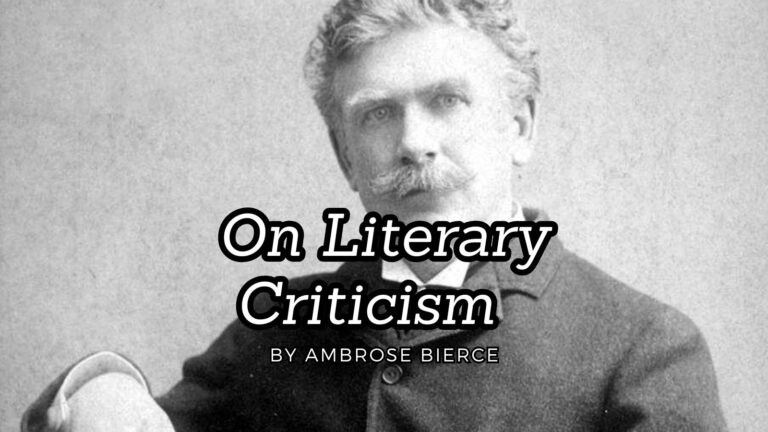
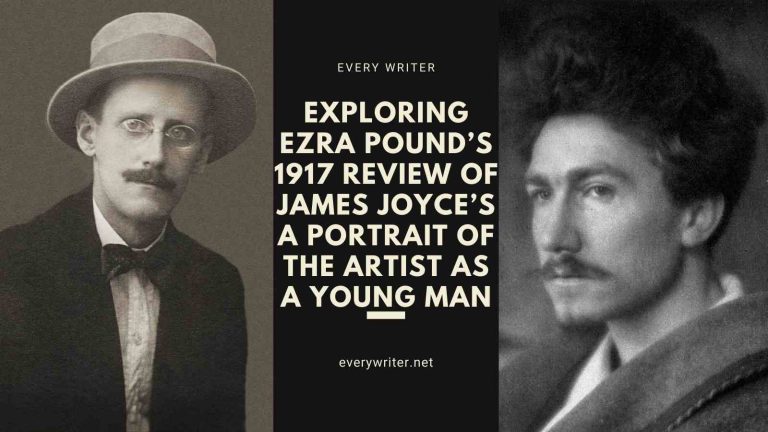

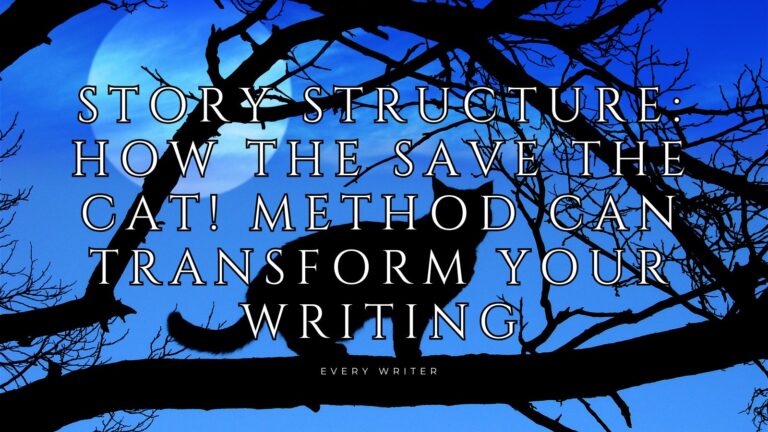
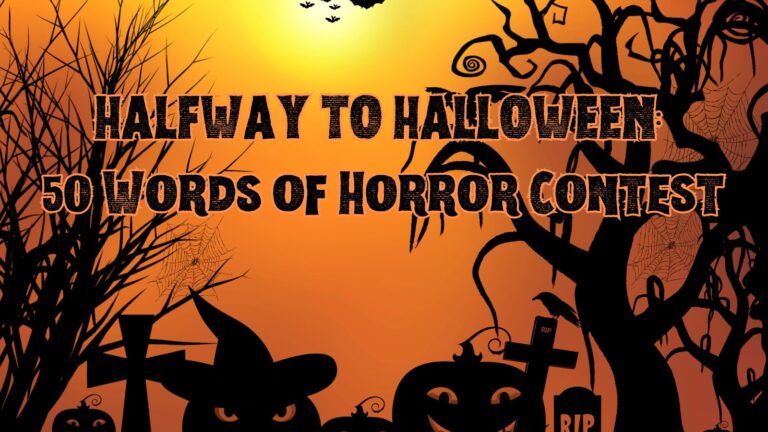

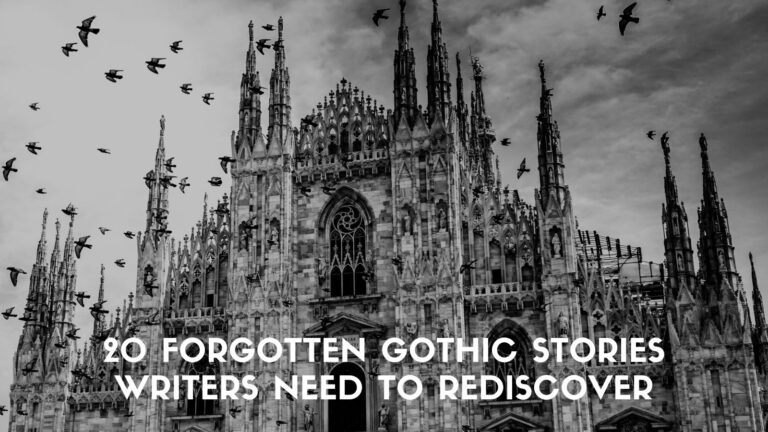
I agree although I didn’t want to. King Lear makes no sense. In college my teachers defended the play by saying the drama was absurdest. Most absurdest drama makes no sense. It’s what I said before about art if it has to be explained then it isn’t art.
this is true!!! shakespeare is not a genius
he just… sucks to death
I agree with Tolstoy, even though I have to say Shakespeare does have many beautiful quotes and speeches and witty saying in his works. However, neither I did like King Lear much, especially how everyone is killed in the end (” the dragging out by the legs of half a dozen corpses, with which all Shakespeare’s tragedies terminate”). Was it so necessary for, say, Edgar, or Gloucester, or Cordelia, to die? What is the point? That good triumphs evil? No, rather the opposite. Such plays are depressing and disappointing, and even pointless. Shakespeare seems to have been writing for the money. Although the language is very beautiful, as are also many passages, overall I am not a great fan of Shakespeare and would rather agree with Tolstoy (whose “How Much Land Does a Man Need”, for example, has a very good point).
Tolstoy is wrong. Shakespeare is the greatest writer of all time.
How one can’t notice the swindler cheap of Tolstoy in distorting Lear? How one can believe in Tolstoy saying “Lear has no necessity or motive for his abdication” when it is explained in first scene of play!!?
Tolstoy is so swindler that it ignores one aspect of Shakespeare’s glory: his poetry. Tolstoy in its laterlife become a moral critic and not a aesthetical critic. Shakespeare to he was an immoral writer, but Shakespeare was a humanist and is where your moral and your thought system must be sought.
Now Tolstoy is right to say that King Lear is unlikely, let’s face it, what father’s 80 years old disinherit his daughter just because of one word? But notice, without it there would be no story at all. Lear’s improbability is not a defect, Shakespeare writes the story so. Tolstoy is also right to say that Shakespeare has a lot of skill in the construction of scenes (in Lear more than any other play) the development of scenes and characters, the poetry, the effusiveness of his invention, the psychological realism, his politic and philosophic intelect, which Orwell calls excessive vitalicty, is simply the literary perfection! so much that no great critic, even the great philosophers (Nietzsche, Marx, Coleridge) contest it in 400 years.
I find dramas lugubrious to read. My mind just doesn’t seem to have a natural aptitude for it and hasn’t been trained for it. Seeing a play which I have previously read on the page performed on the stage is a revelation for me. Every time. It seems magical to me that anyone could make entertainment out of what’s been written down in dramatic dialogue interspersed with stage directions. I suspect that Tolstoy had a similar impediment. His analysis is stilted, if you ask me. Beside the fact that we’ve lost a huge amount of understanding about Shakespeare’s plays through the passage of time and changes in the cultural assumptions. Shakespeare played to the masses in the cheap seats with great effect. Now one needs an ivory-tower scholar to unwind and explain most of the bawdy jokes and word-play employed to keep the audience’s interest. The distancing of context, temporal and geographic, does damage to that native understanding. And yet much of the writing is so damn superb that even someone as disinterested in dramatic writing as I can quote huge swathes of it. So many of the monologues stand alone as timeless encapsulations of human experience that they buoy all the other faults the writings may have. In spite of myself, I like Willy the Shake.
The Shakespeare plays were written by a young team of writers headed by Francis Bacon, an intellectual genius,but designed to elucidate the masses in the revival of Greek and Latin and Renaissance dramas and comedy. They were never intended for those who considered themselves of high literary command, such as it seems Tolstoy saw himself.
Plays were written to be seen, not read, and it would seem that Tolstoy never saw them.
This is a wonderfully silly bauble by the great Tolstoy. Adjudging Shakespeare by 19th century narrative standards is a little like saying medieval painting is dreadful because there is no perspective. Shakespeare’s dramatic genius lies in, among other things, his development of character interiority, a character having an interior life, something Tolstoy made brilliant use of in his work. Nobody had done it since the Greeks and nobody not even the Greeks as richly as Shakespeare. Lear’s genius as a play is in, in part, it’s use of madness as a means of self-reflection. The king who is not introspective when “sane” in madness gets a cold sobering look into his own heart on the beach at Dover. Kent & Edgar’s feeble disguises, Gloucester’s easy duping, the older sister’s dissembling all require a suspension of disbelief the Elizabethans would have found as easy as the forth wall is for contemporary audiences (a convention Elizabethans would have found strange). I’m not a fan of King Lear overall but the scene at Dover is, when done right, a scene of devastating harsh beauty and humanity. Finally, the greatest disappointment of Tolstoy’s argument is his tacit insisting on reading but not seeing the plays. Tolstoy’s shallow adjudging of a playwright by the standards of a novelist bespeaks an arrogance of form and a cowardice of consideration.
Things I actually do like and think I should: War and Peace
Things that I think I should like, but do not like: King Lear
Things I think that I should not like, but do like: South Park.
Things I think that I should not like, And do not like: Donald Trump
There was never a better reader of Shakespeare than Tolstoy. He studied his works in russian, german and english. I think Shakespeare would rather have a devoted detractor like Tolstoy than a snob that glorifies him but never read his works.
Hi Everyone,
Without looking it up, name me just one quote that you remember from even one book by Tolstoy, other than a book title. As for Shakespeare, his quotes role off our tongues, as they were meant to do. He was the playwright of his times. He enriched our lives with literally hundreds of quotes in his plays. Right off the top of my head, Shakespeare’s most famous line comes to mind, “All the World’s a stage and we are mere actors upon it.” So you may know the titles of Tolstoy’s novels, but with Shakespeare you know his words for we use them everyday without realizing it. There is a world of difference between Shakespeare and Tolstoy.
So I Strongly Disagree with Tolstoy!Yes both were great writers, and it is not all that easy to read novels by Tolstoy than it is to enjoy a play by Shakespeare. Shakespeare never wrote a novel, his plays were meant to be spoken with meaning and performed Live.
The sad thing about Tolstoy was that strict Greek Orthodox-ism was the state religion,under the TSAR and as Tolstoy got older, he became more intolerant of everyone’s religious beliefs, and he viciously attacked any and all writings opposed to his strict religious beliefs. Many in Russia thought he had gone mad! He even attacked his own earlier novels, such as “Anna Karenina” as being to decadent.
I could never bring myself to read any of Shakespeare’s plays. Drop dead boring although I was continually forced to listen to Macbeth in school. How dreary. He does have fine poetic talent evident in his sonnets and a couple of long poems. He has a great vocabulary. But he is mostly boring and his themes are too worldly. A great poet must think heavenly thoughts, truth and beauty must be the theme.
Did you know a person can be a great poet, but not be known? A person can also be a famous poet and be depressing. Here is a boast, but not in arrogant pride, I have written better things than Shakespeare, by far.